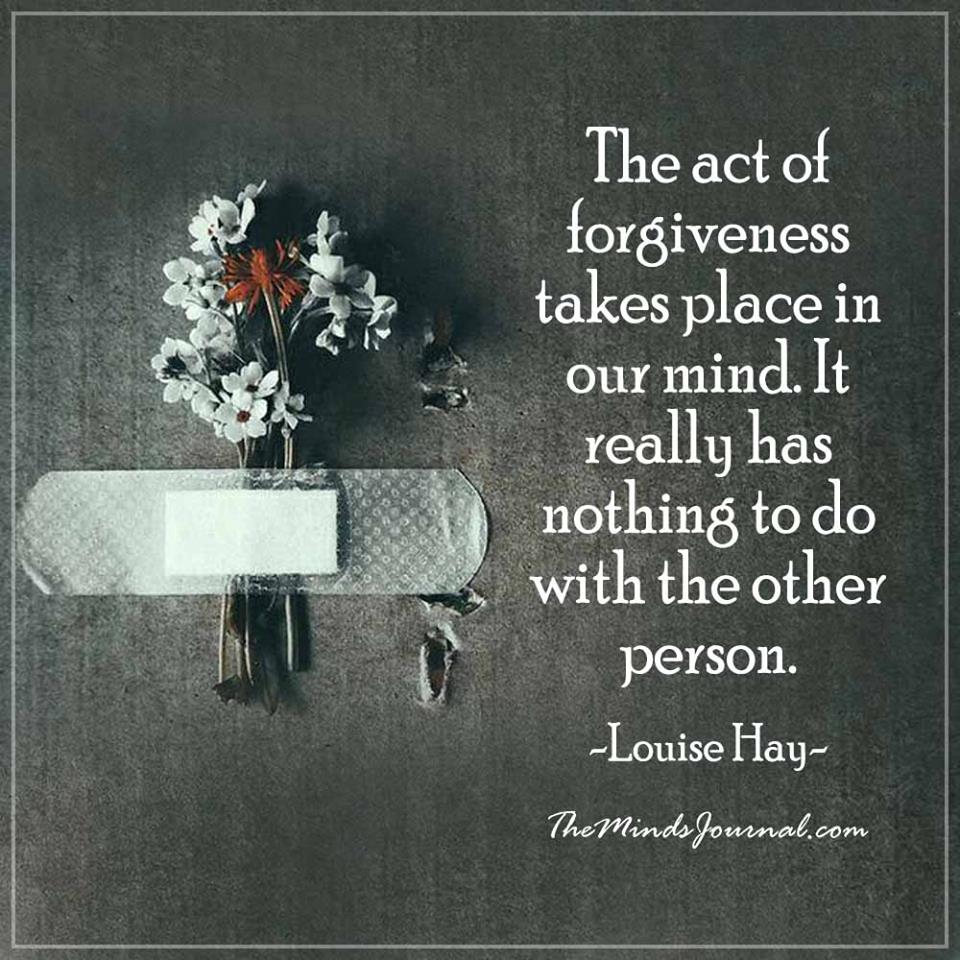The act of forgiveness might be noble, but a tad bit difficult to practice. Which is why a few forgiveness exercises can help your relationship flourish. Forgiveness can tremendously help your relationship stay on the right path. The journey might not be smooth the whole time, but the destination will definitely be worth it.
Life is hard enough without the added layer of conflict with those who are supposed to be good to us, which can lead to resentment which can lead to misery. One’s own inner conflict can spread to others and when a person is in a close relationship, it is all too easy for that inner conflict to become the other’s conflict as well.
Current statistics tell us that such conflict is all too common today. According to the American Psychological Association, about 50% of those who marry end up divorced and second marriages break up at an even higher rate (http://www.apa.org/topics/divorce/). How can one start now to reduce the inner conflict that can lead to couples’ conflict? I would like to suggest the following five forgiveness exercises, which can be started today, as a way of addressing both inner conflicts, resentment, and misery, and relational misery.
The first ground-rule for these exercises is this: You are not doing this to change your partner. Your task is to change yourself and to do your part to improve the relationship. The second ground-rule is this: Your task is not to pressure your partner into these exercises. It is better if both of you are drawn to them, not cajoled into them.
With these ground rules in place, let us go to the first exercise.
1. Exercise #1
Together, talk out what it means to forgive another person. You might be surprised to learn that you are not in agreement as to what forgiveness actually is because such a discussion of its meaning is rare. Common misconceptions are these: To forgive is just to move on from difficult situations; to forgive is to forget what happened; to forgive is to excuse what happened; to forgive is to stop asking something of the other by no longer seeking fairness.
Yet, to forgive is none of these. To forgive is to offer goodness to those who have not been good to you. To forgive is to be strong enough to offer such goodness through your emotional pain for the other’s good. Take some time to discuss each other’s views and please do so with respect. Learning what forgiveness actually is, takes time and effort primarily because we have not been schooled enough in this important concept.
Related: Understanding The 4 Stages Of Forgiveness
2. Exercise #2
The next exercise is to talk out the hurts that you received in your family of origin, where you grew up. Let the other know of your emotional wounds. This exercise is not meant to cast blame on anyone in your family of origin. Instead, the exercise is meant for each of you to deepen your insight into who your partner is. Knowing the other’s wounds is one more dimension of knowing your partner as a person.
As you each identify the wounds from your past, try to see what you, personally, are bringing from that past into the relationship. Try to see what your partner is bringing from the past to your relationship. Who, now, is your partner as you see those wounds, perhaps for the first time?
3. Exercise #3
For the third exercise, together, and only if you choose this, work on forgiving those from your family of origin who have wounded you. Support one another in striving to grow in the process of forgiveness. The goal is to wipe the resentment-slate clean so that you are not bringing those particular wounds to the breakfast table (and lunch table and dinner table) every day. You can find direction in the forgiving process in my book, The Forgiving Life (American Psychological Association, 2012).
Walking this path of forgiveness takes time and should not be rushed. Assist one another in this path. Be the support person for the other. Each one’s personal forgiveness journey is made easier when it is a team effort.

4. Exercise #4
For the fourth exercise, when you are finished forgiving those family members from the past, work on forgiving your partner for those wounds brought into your relationship, and at the same time, seek forgiveness from your partner for the woundedness you bring to your relationship.
Then, see if the relationship improves.
Related: Is Forgiveness Truly Possible In Relationships When Someone Has Hurt You Deeply
5. Exercise #5
Finally, persevere in your forgiveness discussions. As an analogy, you do not become physically fit by four weeks or even four months of effort that then is abandoned. You have to keep at it. To become forgivingly fit, you need to set aside even a little time, perhaps 15 minutes a week, to discuss the injustices impinging on either or both of you, from inside the relationship, inside the family, or outside of it……..and then forgive and help the other to do so.
You do not have to let the injustices of the past and the current inner miseries dominate you or your relationship. Forgiveness offers a cure for the misery and, at the same time, hope for a renewed and strengthened relationship.
References
American Psychological Association (http://www.apa.org/topics/divorce/). Retrieved March 11, 2017.
Enright, R.D. (2012). The forgiving life. Washington, DC: APA Books.
To learn more about the scientifically-proven power of forgiveness and forgiveness education programs for children in more than 30 countries around the world, visit the International Forgiveness Institute.
Written By Robert Enright
Originally Appeared In Psychology Today
Forgiveness takes a lot of strength on your part, and not everyone can forgive. Whenever you or your partner finds it difficult to forgive, come back to these forgiveness exercises, as it will help you a lot in your journey. Have faith in yourself, and be strong because forgiveness is a virtue everyone should have.










Leave a Reply